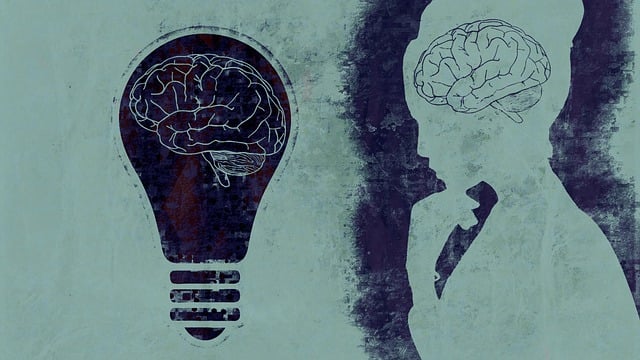Centennial Self-Esteem Therapy emphasizes risk assessment as a cornerstone of mental health practice, aiming to identify and mitigate hazards affecting client safety and therapist resilience. This involves evaluating historical trauma, current stressors, coping mechanisms, and professional skills. By proactively addressing red flags and ethical dilemmas, therapists create a nurturing environment that boosts self-esteem while avoiding manipulation. Key strategies include self-care routines, conflict resolution techniques, and continuous monitoring through regular evaluations to adapt to evolving mental health needs. Ethical considerations balance emotional regulation with professional boundaries, ensuring the therapeutic process remains beneficial for both clients and practitioners.
In the dynamic field of mental health care, risk assessment is a cornerstone of safe and effective practice. This comprehensive guide explores essential aspects of risk management tailored for professionals employing Centennial Self-Esteem Therapy. From understanding foundational concepts like identifying risks specific to this therapeutic approach, to delving into ethical considerations and implementing robust mitigation strategies, each section illuminates best practices for safeguarding clients while fostering meaningful healing.
- Understanding Risk Assessment in Mental Health Practice
- Identifying Potential Risks and Hazards for Centennial Self-Esteem Therapy
- Ethical Considerations in Risk Management for Therapists
- Implementing Effective Risk Mitigation Strategies
- Continuous Monitoring and Adaptability in Mental Health Care
Understanding Risk Assessment in Mental Health Practice

Risk assessment is a critical component of mental health practice, serving as a structured framework to identify and mitigate potential hazards that may impact both clients’ emotional well-being promotion techniques and therapists’ personal resilience. It involves a comprehensive evaluation of various factors, including clients’ historical trauma, current stressors, and coping mechanisms, while also considering the therapist’s self-awareness, clinical skills, and ability to maintain professional boundaries. By employing risk assessment tools tailored for mental health professionals, such as those available in Centennial Self-Esteem Therapy, therapists can proactively identify red flags related to client safety, ethical dilemmas, or potential secondary trauma.
This proactive approach extends beyond initial client intake to ongoing monitoring throughout the therapeutic journey. It involves not only identifying risks but also implementing strategies to enhance confidence boosting and ensure the therapist’s cultural competency training equips them to address diverse client needs effectively. Through rigorous risk assessment practices, mental health professionals can create a safe, nurturing environment that facilitates healing while safeguarding their own emotional well-being in the process.
Identifying Potential Risks and Hazards for Centennial Self-Esteem Therapy

Identifying Potential Risks and Hazards for Centennial Self-Esteem Therapy is a critical step in ensuring its effectiveness and safety. Mental Health professionals who employ this therapeutic approach must be aware of the unique challenges it presents. One significant risk lies in overreliance on the method, potentially neglecting other essential aspects of mental health education programs design. Burnout prevention strategies for healthcare providers are paramount, as the intensive nature of Centennial Self-Esteem Therapy can lead to professional exhaustion if not carefully managed.
Moreover, maintaining a balanced perspective is crucial for therapists to avoid potential hazards related to self-esteem manipulation. Encouraging inner strength development is a core tenet of this therapy, but it must be done mindfully to prevent clients from developing unhealthy ego defenses or an inflated sense of self-importance. By understanding these risks and implementing appropriate burnout prevention strategies, mental health professionals can harness the benefits of Centennial Self-Esteem Therapy while mitigating its potential drawbacks.
Ethical Considerations in Risk Management for Therapists

In the realm of mental health therapy, ethical considerations are paramount to ensuring client safety and fostering a therapeutic environment that promotes mental wellness coaching programs development. Therapists must navigate complex dilemmas where their own emotional regulation plays a crucial role in risk management. For instance, maintaining professional boundaries while cultivating a supportive atmosphere requires therapists to be mindful of potential risks associated with strong emotional connections formed during therapy sessions.
The pursuit of Centennial Self-Esteem Therapy necessitates a nuanced approach that balances empathy and objectivity. Therapists are encouraged to engage in ongoing self-reflection and supervision to mitigate personal biases and prevent unprofessional conduct. By fostering positive thinking and emotional resilience among clients, therapists not only contribute to their mental health improvement but also create a safe space where risks can be explored and managed effectively. This holistic approach ensures that the therapeutic process remains ethical and beneficial for all involved.
Implementing Effective Risk Mitigation Strategies

Implementing effective risk mitigation strategies is a cornerstone of responsible mental health practice, especially for professionals like those at Centennial Self-Esteem Therapy who deal with sensitive issues daily. It involves a multi-faceted approach that goes beyond basic training and includes ongoing professional development. One key strategy is fostering strong self-care routines among therapists. This means encouraging them to prioritize their own mental health through practices such as regular exercise, adequate sleep, and the development of a consistent Self-Care Routine for Better Mental Health. By ensuring therapists maintain good emotional resilience, they can better manage stress and avoid burnout, which significantly reduces risks of error or malpractice.
Additionally, equipping therapists with robust conflict resolution techniques is vital. Equipping them with skills to navigate challenging situations, de-escalate conflicts, and maintain professional boundaries not only protects clients but also safeguards the therapist’s well-being. Moreover, integrating mood management strategies into therapy sessions empowers both clients and practitioners to recognize and constructively handle emotional intensities, thereby mitigating potential risks associated with unprocessed emotions.
Continuous Monitoring and Adaptability in Mental Health Care

In the dynamic field of mental health care, continuous monitoring and adaptability are paramount. Professionals must constantly assess patient progress, being vigilant for any changes in symptoms or behaviors that might indicate a shift in their mental wellness. This involves regular evaluation through various methods like self-awareness exercises and structured therapy sessions, such as Centennial Self-Esteem Therapy, to ensure interventions are timely and effective. By staying agile, practitioners can adapt their approaches based on individual patient needs, integrating new insights from Mental Wellness Coaching Programs Development or Conflict Resolution Techniques as they emerge.
This adaptive approach acknowledges that mental health journeys are unique and ever-evolving. Professionals who remain attuned to these nuances can better support clients in navigating life’s challenges. Continuous monitoring fosters a culture of safety and empowerment, where patients feel heard and understood, encouraging open communication and facilitating rapid responses to emerging issues, ultimately enhancing the quality of care provided.
Mental health professionals play a vital role in fostering resilience and well-being, but they are not immune to risks. Implementing robust risk assessment practices, such as those tailored for Centennial Self-Esteem Therapy, is essential to ensure the safety of both therapists and clients. By identifying potential hazards, adhering to ethical guidelines, and employing effective mitigation strategies, professionals can create a secure environment that promotes healing. Continuous monitoring and adaptability are key to navigating the dynamic nature of mental health care, ensuring that both therapist and client remain on a path toward positive outcomes.














